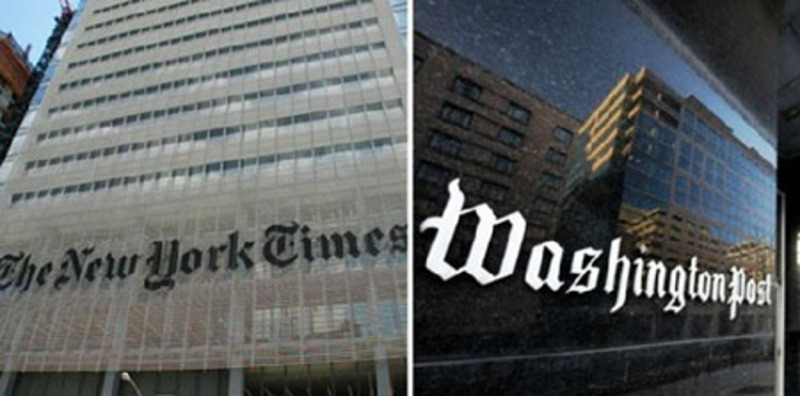FPI / July 20, 2022
The board that decides Pulitzer Prize winners is refusing to withdraw the awards presented to The New York Times and Washington Post in 2018 for their false reporting on the Trump-Russia investigation.
Former President Donald Trump said in response to its decision that the Pulitzer board “has taken away any shred of credibility it had left.”
“Instead of acting with integrity and providing transparency, the Pulitzer Board is running cover for the biggest reporting failure in modern history: the fake Russia Russia Russia collusion hoax,” Trump said.
The Pulitzer Prize Board claimed in a statement Monday that it commissioned two independent reviews after receiving inquiries from Trump and others.
"Both reviews were conducted by individuals with no connection to the institutions whose work was under examination, nor any connection to each other. The separate reviews converged in their conclusions: that no passages or headlines, contentions or assertions in any of the winning submissions were discredited by facts that emerged subsequent to the conferral of the prizes," the Pulitzer board's statement says.
Trump demanded that the board rescind the award from the New York Times and Washington Post and threatened legal action in a letter in May.
"There is no dispute that the Pulitzer Board's award to those media outlets was based on false and fabricated information that they published. The continuing publication and recognition of the prizes on the Board's website is a distortion of fact and a personal defamation that will result in the filing of litigation if the Board cannot be persuaded to do the right thing on its own," Trump said in the letter dated May 27.
Related: Trump demands Pulitzer board remove NY Times, Washington Post prizes for Russiagate coverage, June 1, 2022
The board awarded the 2018 Pulitzer Prize for national reporting to the two publications for what it called "deeply sourced, relentlessly reported coverage in the public interest that dramatically furthered the nation’s understanding of Russian interference in the 2016 presidential election and its connections to the Trump campaign, the President-elect’s transition team and his eventual administration."
While Russia may have attempted to interfere in the 2016 election, according to the Mueller investigation and other official investigations, the remainder of the above statement is false.
Trump said in his July 18 statement that the only Pulitzer the New York Times and Washington Post should get is in the category of “disinformation for helping to perpetuate a false story created and peddled by Crooked Hillary Clinton, the DNC, and certain lowlife Democrats.”
Trump also took aim at the House select committee investigating the breach of the U.S. Capitol on Jan. 6, 2021, describing it as another “witch hunt.”
“I will continue doing everything possible to right the wrong caused by the 2018 Pulitzer Prize and also to right the wrong being done by the January 6 Committee of Unselects, where there is no Due Process, no Cross-Examination, no real Republican members, and no legitimacy,” he said. “It is a witch-hunt of the highest level, the likes of which has never been seen in our Country before.”
A Pulitzer has never been revoked.
Robert Morton, President of FreePressFoundation.org, said the future of American journalism is hanging in the balance.
“Either these awards should be rescinded or the New York Times and the Washington Post should uphold the highest traditions of the American Free Press and voluntarily surrender them,” he said.
In 2003, Pulitzer considered rescinding the 1932 award to infamous New York Times’ Moscow correspondent Walter Duranty, who was an apologist for one of history’s bloodiest tyrants, Joseph Stalin.
After six months of consideration, the Pulitzer board decided not to rescind Duranty’s prize, explaining at the time that “A Pulitzer Prize for reporting is awarded not for the author’s body of work or for the author’s character but for the specific pieces entered in the competition.”
The 2018 award winning journalists reporting on Trump-Russia “collusion” were Maggie Haberman, Jo Becker, Matt Apuzzo and Mark Mazetti from the Times and Rosalind Helderman, Tom Hamburger, Ellen Nakashima, Adam Entous and Greg Miller from the Post.
Free Press International

nytwapo by is licensed under
We thought you'd be interested in this message from our sponsor.
nytwapo by is licensed under
We thought you'd be interested in this message from our sponsor.
Get latest news delivered daily!
We will send you breaking news right to your inbox
Have a tip? Let us know!
We thought you'd be interested in this message from our sponsor.
We thought you'd be interested in this message from our sponsor.
We thought you'd be interested in this message from our sponsor.

